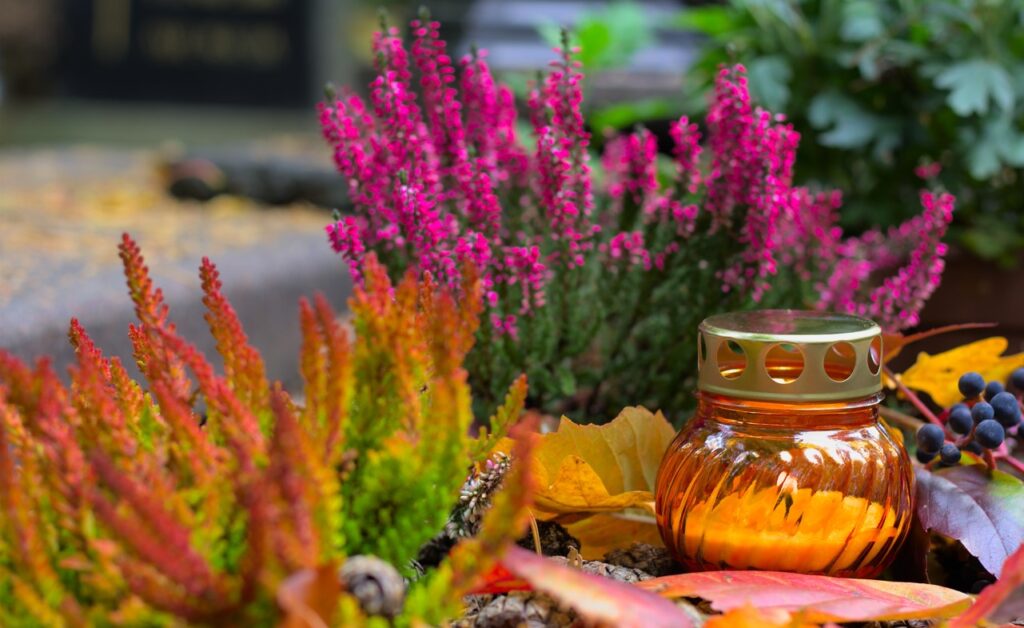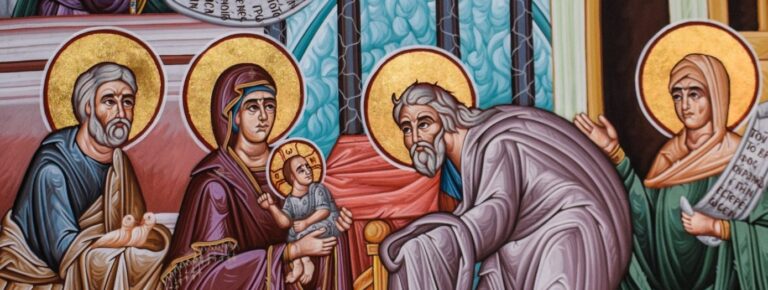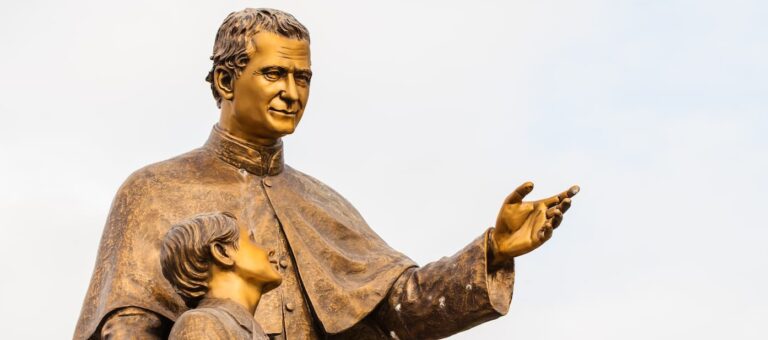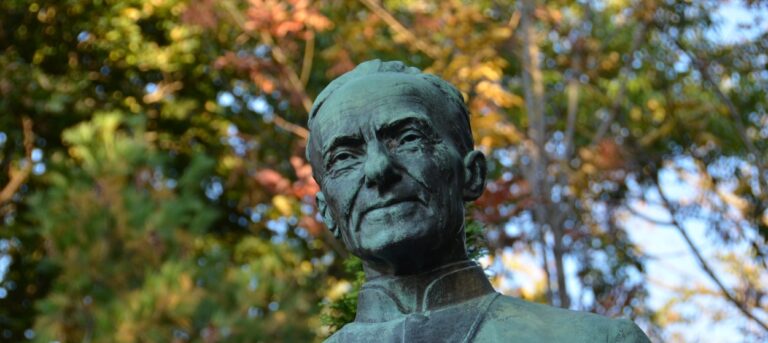
THE WORK OF ALL SOULS DAY

For those of us living in the Northern Hemisphere, the leaves have fallen and begun their decay. There is little left in our gardens but the most tenacious blooms and produce. The longer nights have begun to impinge on daylight at its beginning and end. Creation’s cycle of dying and rising is calling out to us to pay attention. And pay attention, we do. We remember all the souls who have gone before us – loved ones, forgotten ones, some gone for many years, some having left us newly bereft. As we remember, we know that we, too, will one day be numbered among these souls. This may not be the most pleasant of realities upon which to focus but it is important. To grieve the ones we have loved, to acknowledge their ongoing presence in our lives and to pay attention to our own mortality helps us make the most of our living. Only when we face the tragedy of death can we appreciate what it means that “death has been swallowed up in victory (1 Corinthians15:54b).”
As a lay pastoral minister, I spend a good deal of time accompanying people in grief. There are two realities that I find helpful to ponder with people at the time of a death. The first is that each and every one of us is created in the image and likeness of God. The other is that none of us reflects that image fully.
Insofar as they were created in the image of God, those who have gone before us, tell us something about who God is. All Souls day, can provide us with an opportunity to consider just what it is about God that was revealed to us in the life of our parent or child or friend or spouse. Did we learn of God’s fidelity from them because they were consistently available in times of need? Perhaps we learned of God’s compassion by their care and concern for those around them. It may be that we experienced God’s unconditional love, or creativity or beauty. Each person who enters this world for however brief a time is an encounter with God’s image. All Souls’ Day can be an occasion to gratefully celebrate these encounters and commit to passing them on to others. In this way, the people whom we have loved, continue to live on in this world in very concrete ways.
But our goodness is not the whole story. The image of theologian Karl Rahner expresses this most beautifully. He says we leave this world as an “unfinished symphony.” We all die with unresolved hurts. It is not always possible before death to be reconciled with those who have harmed us nor with those whom we have harmed. Sometimes, we are even unaware of the hurts we have caused. They remained unspoken and unacknowledged in the silent places of the heart. Thus, another opportunity we have on this Solemnity of All Souls is to pray for forgiveness and to offer forgiveness even across the bounds of death. In letting go of resentments we still hold, we not only free ourselves but express a Christ-like love of neighbour that extends beyond physical life. And our Catholic notion of purgatory can leave us confident that in their encounter with Christ in eternity, the ones who have left scars on our hearts are now filled with awareness and gaze back upon us, praying for our healing.
Let us, then, embrace this day and the November month that follows. Remembering. Grieving. Forgiving. Giving thanks.
Christine Way Skinner is a doctoral student at Regis St. Michael’s at the Toronto School of Theology and has been a lay pastoral minister for more than 30 years. Together with her husband, Michael, she has parented 6 wonderful children. She has written a number of books for Novalis on living the Catholic faith for both adults and children.


